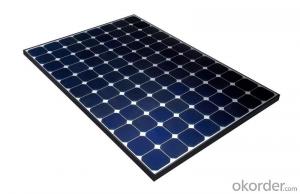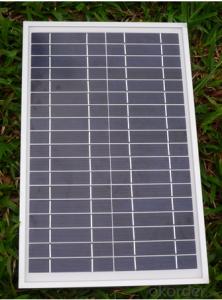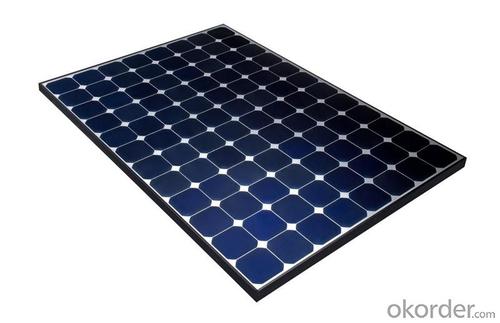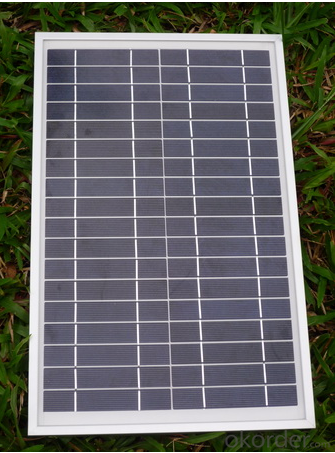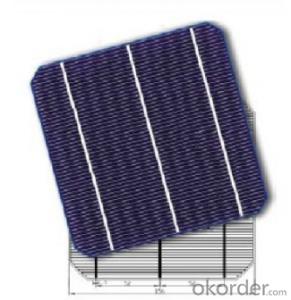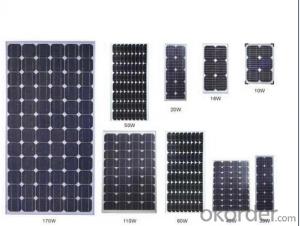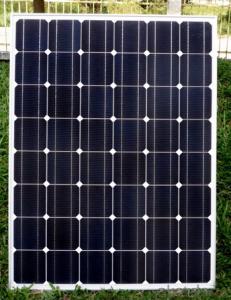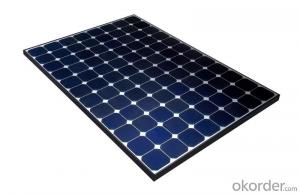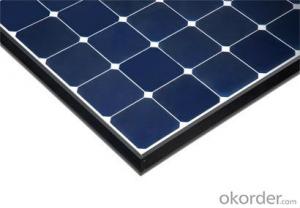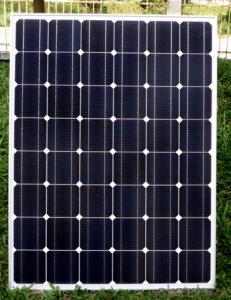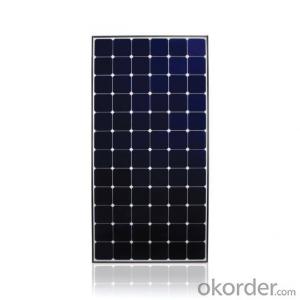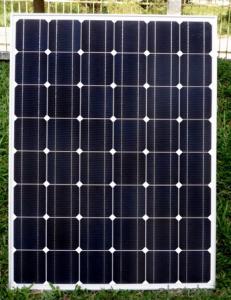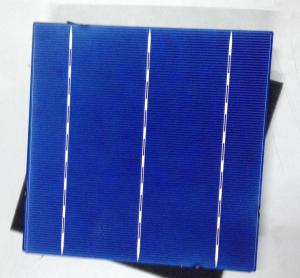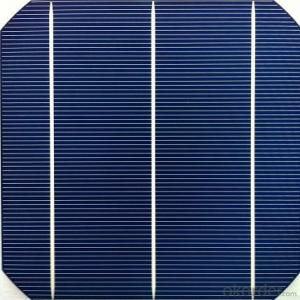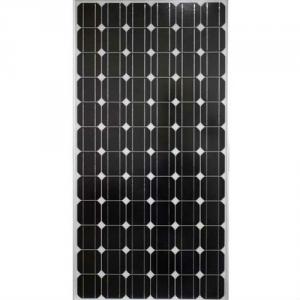Loose Solar Cells - Poly Solar Panel 105w A Grade with 12 Years Warranty
- Loading Port:
- Shanghai
- Payment Terms:
- TT OR LC
- Min Order Qty:
- 100 watt
- Supply Capability:
- 1000 watt/month
OKorder Service Pledge
OKorder Financial Service
You Might Also Like
Specification
Poly Solar Panel 105W A Grade with 12 Years Warranty
Production description
The International Energy Agency projected in 2014 that under its "high renewables" scenario, by 2050, solar photovoltaics and concentrated solar power would contribute about 16 and 11 percent, respectively, of the worldwide electricity consumption, and solar would be the world's largest source of electricity. Most solar installations would be in China and India.[2]
It may also use a solar tracking system to improve the system's overall performance and include an integrated battery solution, as prices for storage devices are expected to decline. Strictly speaking, a solar arrayonly encompasses the ensemble of solar panels, the visible part of the PV system, and does not include all the other hardware, often summarized as balance of system (BOS). Moreover, PV systems convert light directly into electricity and shouldn't be confused with other technologies, such as concentrated solar power or solar thermal, used for heating and cooling.
Operating silently and without any moving parts or environmental emissions, PV systems have developed from being niche market applications into a mature technology used for mainstream electricity generation. A rooftop system recoups the invested energy for its manufacturing and installation within 0.7 to 2 years and produces about 95 percent of net clean renewable energy over a 30-year service lifetime.[1]:30[2][3]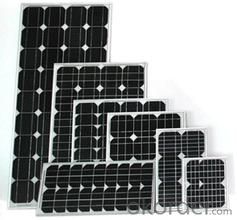
Application
Commercial
Industrial
Residential
Product Feature
12 years quality warranty 25 years performance output.
Free for less than 5 pcs sample requirement
Free to replace or repair or refund if products fail to conform to the PI requirement.
Packaging
28pcs into carton 2carton into pallets 28pallets into a 40ft container
Delivery
After 25 days for manufacturered goods as soon as we received full payment.
After 10 days for stock goods as soon as we received full payment.
- Q: How do solar cells perform in regions with high levels of salt spray and corrosive environments?
- Solar cells can be affected by salt spray and corrosive environments, which can degrade their performance over time. The exposure to high levels of salt spray can lead to corrosion of the cell's components, such as the metallic contacts, leading to a decrease in efficiency. However, manufacturers have developed various protective coatings and materials to mitigate the effects of salt spray and corrosion, ensuring the long-term performance of solar cells in such challenging environments.
- Q: What is the role of solar cells in powering streetlights?
- Solar cells play a crucial role in powering streetlights by converting sunlight into electrical energy, which is then used to illuminate the streetlights. They provide a sustainable and renewable source of power, reducing dependence on the electrical grid and minimizing carbon emissions. Moreover, solar cells enable streetlights to operate efficiently, even in remote or off-grid locations, making them an environmentally friendly and cost-effective solution for outdoor lighting.
- Q: Can solar cells be used for powering security systems?
- Yes, solar cells can be used for powering security systems. Solar cells convert sunlight into electricity, which can be used to power various devices including security systems. This renewable energy source is reliable, cost-effective, and environmentally friendly, making it a suitable option for powering security systems in remote locations or areas with limited access to electricity grids.
- Q: What is the role of solar cells in powering electric fences?
- Solar cells play a crucial role in powering electric fences by converting sunlight into electrical energy. These cells, also known as solar panels, capture sunlight and generate a direct current (DC) that is stored in a battery. The stored energy is then used to power the electric fence, providing a constant source of electricity without the need for grid connection or fossil fuels.
- Q: Where can I find more information about the work process of solar cells
- Though the scientific website by searching solar cell work process.
- Q: Which Solar Panel Type is best? Polycrystalline panel or PV Module Monocrystalline Solar cell panel, or thin film?
- The Monocrystalline silicon solar panels requires less space to operate, so it is one of the best if you don't have a huge space to install it.
- Q: What is the environmental impact of solar cell production?
- The environmental impact of solar cell production is generally considered to be lower compared to other forms of energy production. While the production of solar cells does require the extraction and processing of raw materials, such as silicon, the overall carbon footprint and pollution associated with solar panel manufacturing is significantly lower compared to fossil fuel-based energy sources. Additionally, solar panels have a long lifespan and produce clean, renewable energy once installed, which helps offset the initial environmental impact of their production.
- Q: Can solar cells be used for powering electric gates?
- Yes, solar cells can be used for powering electric gates. Solar cells convert sunlight into electricity, which can be used to charge batteries that power the electric gates. This renewable energy source is an environmentally friendly and cost-effective solution for gate automation.
- Q: Can solar cells be used for powering drones?
- Yes, solar cells can be used for powering drones. By converting sunlight into electricity, solar cells can provide a renewable source of power to drones, reducing the need for traditional batteries and increasing flight duration. Additionally, solar-powered drones have the potential to operate for extended periods without the need for frequent recharging, making them more sustainable and cost-effective in various applications.
- Q: How does a solar cell work?
- A solar cell works by converting sunlight into electricity through the photovoltaic effect. When sunlight hits the solar cell's surface, the photons (light particles) transfer their energy to the electrons in the semiconductor material within the cell. This energy allows the electrons to break free from their atoms and create an electric current. The separated electrons then flow through the cell's electrical circuit, generating usable electricity.
Send your message to us
Loose Solar Cells - Poly Solar Panel 105w A Grade with 12 Years Warranty
- Loading Port:
- Shanghai
- Payment Terms:
- TT OR LC
- Min Order Qty:
- 100 watt
- Supply Capability:
- 1000 watt/month
OKorder Service Pledge
OKorder Financial Service
Similar products
Hot products
Hot Searches
Related keywords
